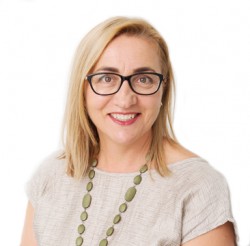
What inspired you to become an acupuncturist and Chinese Herbalist, with a special interest in fertility and pregnancy?
Fertility, pregnancy and women’s health conditions are some of the most interesting and complex to treat, for this reason it has always drawn me – there are so many interesting aspects to consider, such as hormonal and emotional factors.
I love the challenges fertility issues present, and in particular the joy of hard-fought successes such as conceiving a baby after years of trying. I also enjoy then treating patients up until they give birth – there is a real sense of completion and connection with the patient.
I first experienced the benefits of Chinese Medicine when my infant son did not gain weight and was diagnosed with ‘failure to thrive’, and was very unsettled. Several pediatricians were unable to provide a reason or a solution. Chinese Medicine, however, provided some notable improvements, and I was hooked.
What do you see as the strengths that acupuncture and Chinese Medicine (CM) have to offer in terms of fertility and reproductive support?
Fertility and pregnancy treatments are a major area of strength in Chinese Medicine as it fills a gap in conventional Western Medicine. This makes it a wonderful adjunct to medical treatments such as IVF. If a pathology is not visible (eg in scans/to the eye) or does not show up in testing such as blood tests, Chinese Medicine excels. This is why Chinese Medicine can be effective with diagnoses such as ‘unexplained’ infertility, or for older patients. Traditional Chinese Medicine has a different diagnostic system and we can find a diagnosis (and therefore help treat) even when there is none in Western Medicine.
Chinese Medicine practitioners treat the individual, not the disease, and aim to strengthen underlying issues in the body. The treatments are more patient- centred.
Also, Chinese Medicine is a holistic approach, supporting the OVERALL health and vitality of the body, as well as treating health issues directly. The principle aim of Chinese Medicine and acupuncture is to recover the equilibrium between the physical and emotional aspects of an individual, by treating the whole person. This is why we also provide lifestyle and dietary advice, and consider the emotional state of patients.
Patients often report they feel less stressed and more able to cope following acupuncture treatments, and we see this as a vital part of the treatment.
In your work you assist a lot of women on their journey to becoming pregnant, do you recommend they continue to see you after they have fallen pregnant? What does acupuncture and Chinese medicine have to offer during pregnancy?
Chinese Medicine is very useful throughout pregnancy. It offers a gentle approach to treatment without side-effects. It can help treat conditions such as nausea in early pregnancy, and any pain throughout the pregnancy. In late pregnancy, acupuncture can be used to prepare the patient for an on-time labour.
The benefits of treatment also extend to post-partum for issues such as poor milk supply and for a boost in energy when exhausted.
Your week tends to be very busy, what sort of self-care do you do to recharge outside of seeing patients?
I get lots of benefit from connecting with special friends, and possibly combining this with a walk. Also a regular yoga practice. I find that any practice that nourishes you emotionally as well as physically, has more far-reaching benefits. Whenever time permits, I also enjoy acupuncture, kinesiology or massage treatments throughout the year.
I enjoy massage treatments primarily for stress relief, and acupuncture or kinesiology when I have a more acute condition that needs addressing such as pain. I personally really enjoy kinesiology – it’s an eclectic mix of treatment approaches (and even incorporates some Chinese Medicine channel theory).
What are your top five tips for others to help maintain a healthy lifestyle?
Learn more about Sonia Millet on our practitioner page here: Sonia Millet, FGHG Acupuncturist